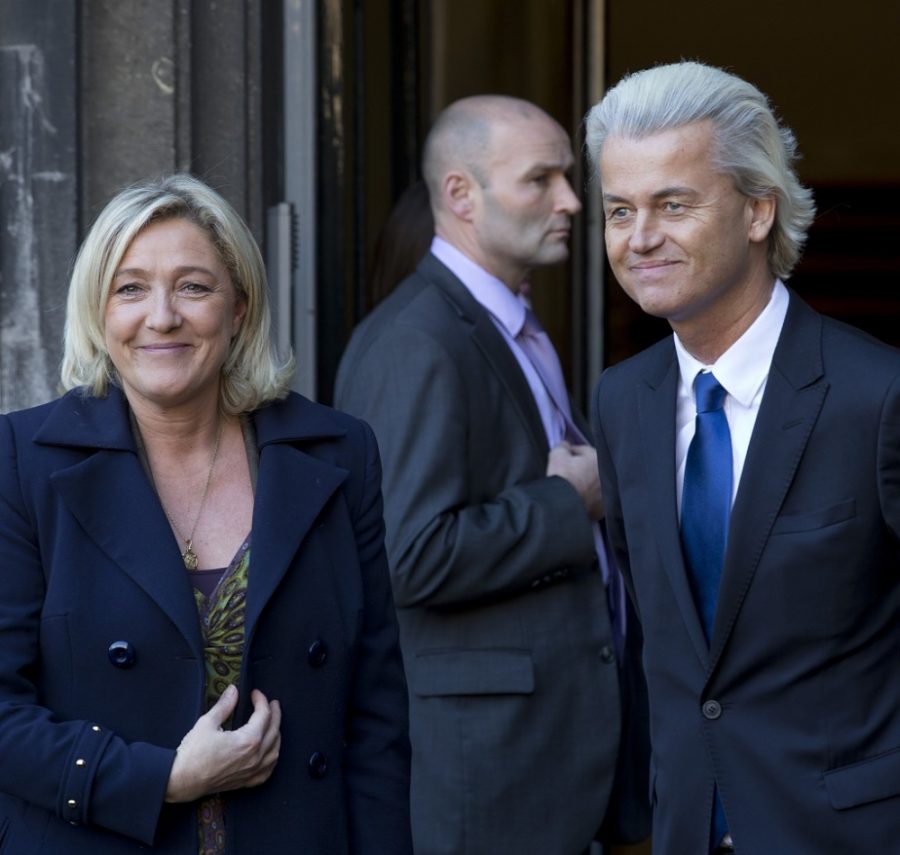The Ripple Effect: Lasting impacts
How the xenophobic wave sweeping across elections worldwide will be undeterred no matter who wins
Across the Atlantic Ocean, the rising xenophobic sentiment following Donald Trump’s rise to president is key in this year’s European elections – from the French presidential decision to the Dutch parliamentary election – as candidates there utilize its surge in popularity.
And no matter who wins in Europe, that xenophobia is still a blow to diversity in those countries.
Take France’s Marine Le Pen. Le Pen, a member of the National Front party, has tried to soften the party’s image, according to the BBC. At the same time, however, she supports giving native French drastic advantages over ‘foreigners’, even having said, “If you come to our country, don’t expect that your children will be educated without charge … playtime is over.”
Aside from Le Pen, the more obvious connection between America’s recent elections and Europe’s is in the Netherlands’ Geert Wilders. According to TIME magazine, Wilders’ campaign slogan is even the familiar-sounding “Make the Netherlands ours again”.
Moreover, the Dutch Party for Freedom (PVV), as led by Wilders, espouses stricter immigration laws (Wilders has even declared the Netherlands should no longer accept immigrants, period, according to The New York Times) and Islamophobia.
Yes, Wilders has come in second to incumbent prime minister Mark Rutte, and Le Pen is projected to lose in France’s second round of elections. But the impact both have made on their countries is indelible.
In both countries, other candidates echo Wilders and Le Pen, rephrasing some of their opponents’ policies to seem less extreme. Doing so lets them attract voters unsure if they support hardline statements like Wilders’ “the Quran should be banned” or Le Pen’s “housing should go first to non-foreigners.” At the same time, those who oppose the two are promptly shut down by supporters when someone points out a certain other person with similar policies who won a presidency.
According to TIME magazine, after all, Le Pen snapped at an opponent during a recent debate, “You are fueling people’s fear. This is exactly what people did to Donald Trump.”
Meanwhile, The Washington Post reported Rutte gained an edge in the Netherlands by aligning his stance on immigrants with Wilders’ own. In fact, Rutte even placed an ad in Dutch newspapers insisting immigrants “act normal or go away:” assimilate entirely and give up the last vestiges of their culture to belong.
This potential triumph over xenophobia isn’t so much a victory as it is a halfhearted thwarting of the immediate onslaught of fear and hatred that would result from Le Pen or Wilders’ election, swapping it with a diluted form that will fester over time. That the two have come this far in their countries is a window into how large – or at least, how fervent – the base of supporters for their policies is.
It is inexcusable to reject one candidate’s fear-mongering rhetoric and welcome the watered-down version of another’s with open arms, as though the publicly acceptable version will not develop into something more explicitly hateful later on.
Perhaps it’s time for immigrants to tweak Rutte’s suggestion: act “normal” – or rather, act like themselves, and don’t let an identity fade just to fit in with those who fear the thought of a changing world.












